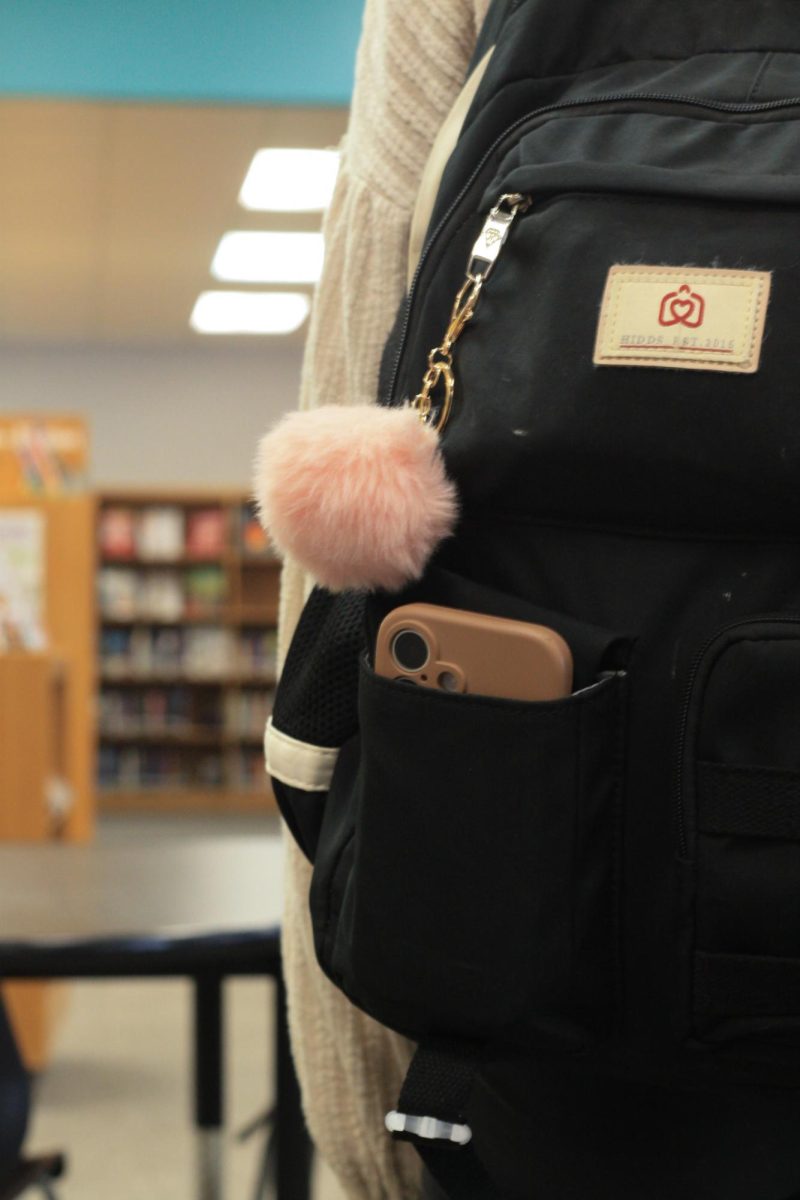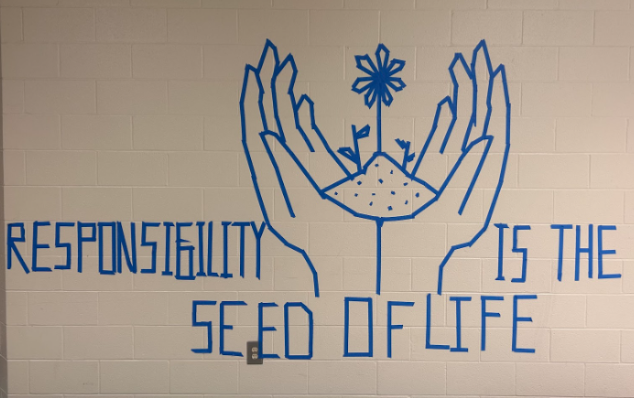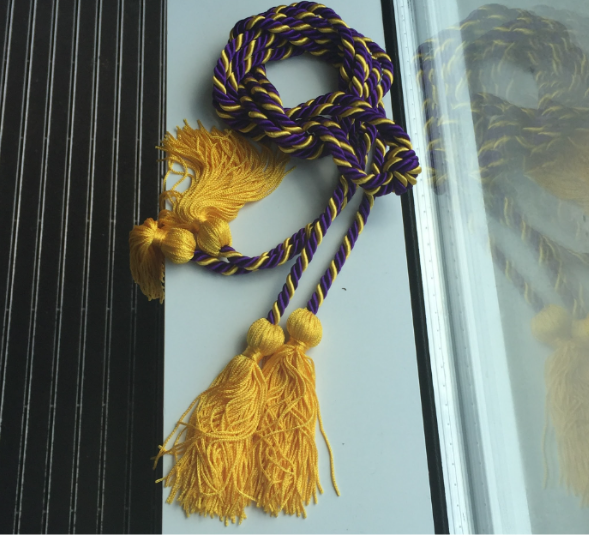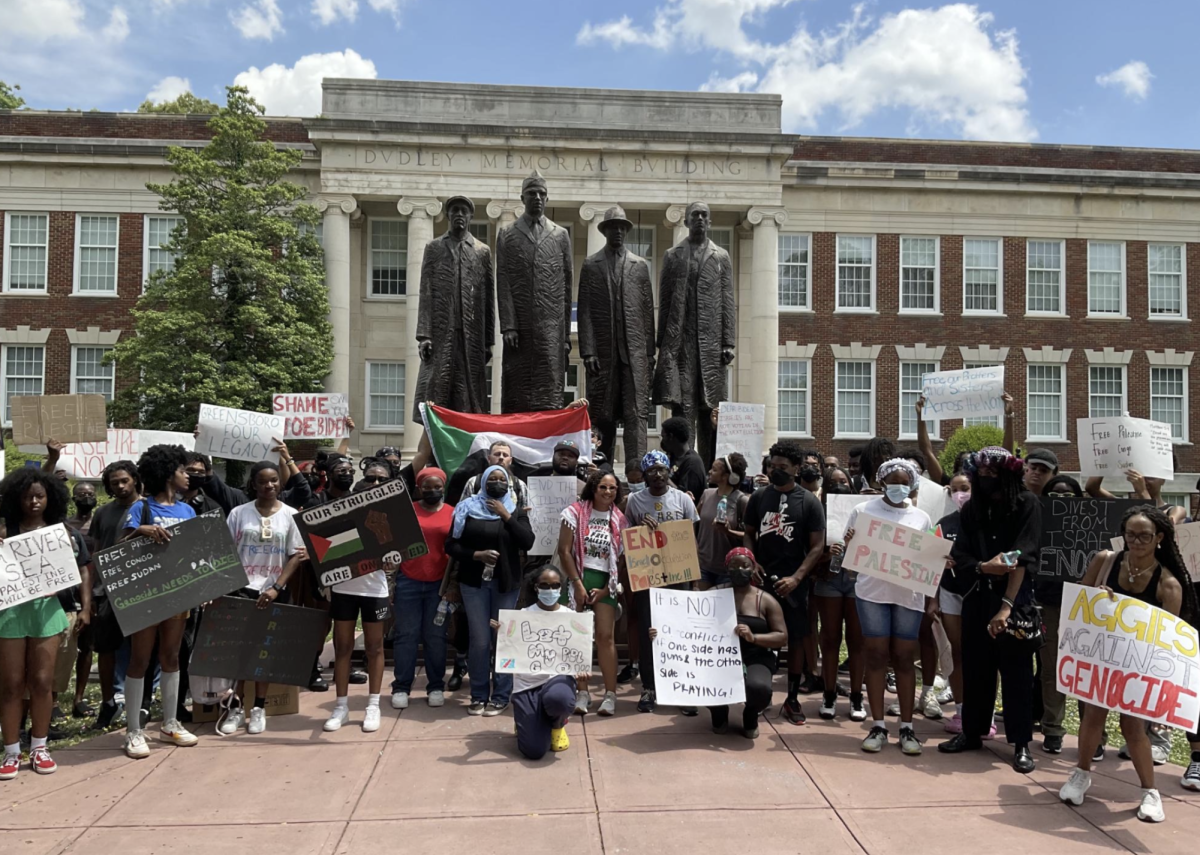If you asked yourself a year ago to give up your phone for a day, could you do it? What about an entire school year? The 2025-2026 school year is in for many changes, one of the biggest changes being the new policy banning cell phones from classrooms this year. Learning key information about how and why this policy is being implemented can help you understand it going into this year.
Policy 4318 from the JCPS school board states that “the use of a personal cellular phone or electronic/media device during instructional time is prohibited.” The policy further explains that cell phones must remain powered off and stored away for the entire day except for lunchtime. Apple Watches are still permitted, but exemptions are rare. It is written that “Administrators may authorize individual students to use personal electronic devices for communicating during a crisis, or for unforeseen needs.” School nurses or administrators can also provide medical exemptions to individual students.
The school board clearly explains that if a student is not in compliance with the new policy, then consequences will be administered. On the first offense, the cell phone will be taken and can only be returned to the student’s parent or guardian. A second offense may warrant a 3-day suspension, while a third offense could result in up to ten days of suspension.
The JCPS school board describes cell phones as “disruptive to the educational environment, not conducive to productive learning experiences, and often the source of disciplinary intervention.” This statement, as well as concerns about the negative effect that cell phones have on students’ mental health, has pushed this policy to be implemented in states across the U.S. In fact, at least 26 states and Washington, D.C have passed legislation banning or restricting cell phone use in schools.
The state law banning cell phones was passed and signed by NC Governor Josh Stein this summer. He has voiced concerns about cell phones in schools by saying, “When teachers do not have to compete with social media for their students’ attention, that is when real learning happens. There are also real mental health benefits for our teens by limiting cellphone usage at school.” This supports the statement that banning cell phones will benefit students’ learning opportunities, as well as their mental health. 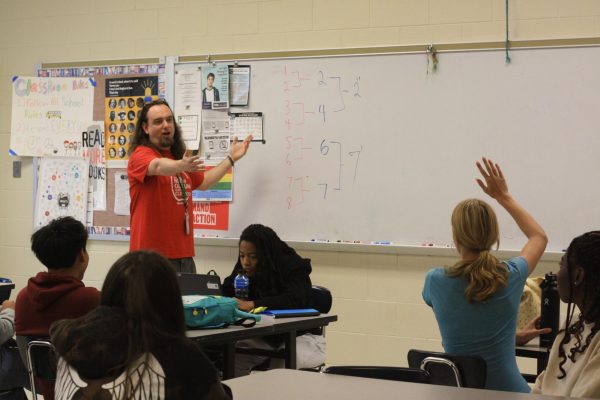
After three weeks without cell phones, teachers and students have started to form opinions based on what they’ve seen firsthand. Mr. Vanderlaske, an English teacher at West Johnston, described student behavior after the ban as “all positive, students interact, look, and connect with each other, all while completing work.” Many teachers have said phones have long been an obstacle for students to focus and communicate, and the ban has already made classrooms more engaging.
Students, however, have mixed feelings. After being asked how the new policy has impacted her education, senior Ava Parker stated, “I feel like it’s making it a lot more difficult because it’s such a burden,” referring not just to the phone ban, but also to the restrictions on personal computers. Banning personal computers has limited many students’ access to schoolwork.
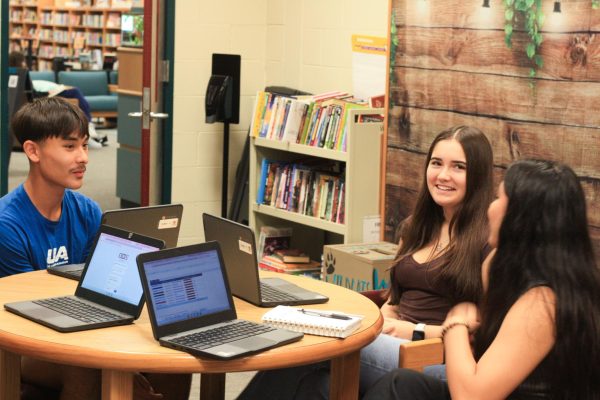
On the other hand, some students seem to have taken a positive outlook on being in school without their phones. Aj Jones, a senior at West Johnston, says, “I actually found it helpful. I’ve been able to get my classwork done without the distractions of my phone.” Students may struggle without their personal computers; however, they seem to embrace a school life without phones and even see the benefits of it.
Barely a month into the school year, the phone ban has already changed daily life at West Johnston. Whether viewed as a burden or a benefit, the policy applies to everyone and continues to shape how students learn, focus, and interact in the classroom.
